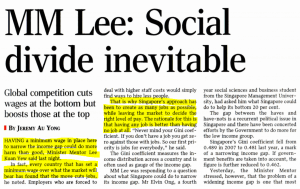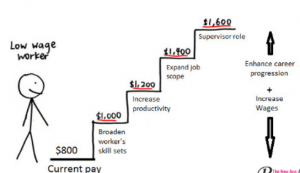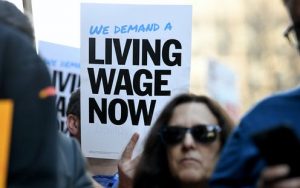This article explores the different models of income. Have a good read!

Minimum Wage
A minimum wage is the lowest remuneration employers may legally pay to workers. It might not concern you if you are well paid, but supporters of the program claim that it guarantees a minimum income for low wage workers and guard them from being exploited. This may be true for some societies, but it is observable there exists an invisible wage floor in Singapore.
This article will not attempt to discuss if minimum wage is or is not good for Singapore. Opponents believe that minimum wage has the potential to increase unemployment, especially within the low-skilled, low waged sector. This can happen when workers with very low productivity compete with productive ones for the same jobs. It is more popular with less developed Asian countries, such as Cambodia, Indonesia and Vietnam which thrive on such a strategy to stimulate their economies.
However, basic economics tell you that you cannot artificially increase the price of something above its value, if so, people don’t buy and supply increases (…and in this case, unemployment).
Minimum wage does not necessarily = a living wage. The cost of living is usually higher than what law can demand a company to pay.

Progressive Wage
Imagine a ladder. You start off the first rung of employment that pays $1400. You acquire experience and expertise that will proceed you to the next rung of $1600. When the position cannot possibly pay you any further, you upgrade with new skills and intelligence that enable you to switch ladders, and start at even higher salary, $2000.
Again, back to basic economics: if you cannot artificially inflate the value of a service above its market value, then the option you are left with is to increase its real value. A cleaner that can operate more complex equipment, a store man that can manage complex data systems – these are examples that businesses will pay more for as it brings benefits of: lower costs or improved customer satisfaction.

Living Wage
A Living Wage is calculated according to the basic cost of living in a country. It is the minimum income necessary for a worker to meet basic needs of food, shelter, clothing and healthcare.
In the United Kingdom, a worker’s cause known, literally, as “The Living Wage” has developed a pretty interesting program. They claim that it was launched by parents in East London, who were frustrated that working two minimum wage jobs left no time for family life and that employers should voluntarily sign themselves up. This is a smart move as it means that the country does not bear the burden of possible economic failure and political backlash from having to continuously adjust a minimum wage figure.